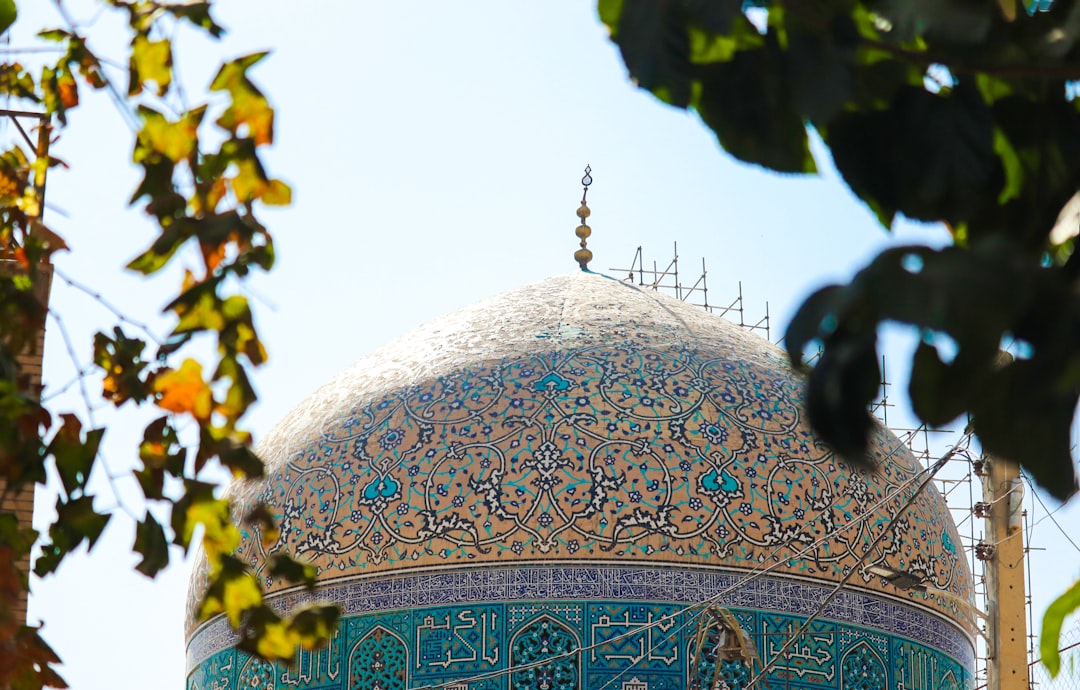The human soul is a boundless ocean, yet often, we live as though confined to a small, anxious puddle. We spend our days clinging to the shore of self, convinced our tiny identity is all there is. But there comes a point, a moment of profound recognition, when the heart whispers of a greater intoxication, a vaster sea. Rumi, the master of divine passion, captures this relentless spiritual thirst in his Ghazal, a poem that is less a composition and more a vibrant, beating heart seeking union.
The Call of Holy Madness
The opening lines set the tone for this ecstatic journey:
"بیخود شدهام لیکن، بیخودتر از این خواهم" (I have become self-less already, yet I desire a greater self-lessness)
"با چشم تو می گویم، من مست چنین خواهم" (I tell you with your own eye, I desire such a drunkenness)
To be "bikhod"—self-less, ecstatic, beside oneself—is the first step. It is the moment we surrender the ego’s frantic control. Yet, Rumi’s desire is not for a fleeting moment of peace, but for an ever-deepening intoxication. He demands more than the initial awakening; he seeks to be utterly consumed, to be drunk not on wine, but on the very gaze of the Divine. The shift is crucial: he sees his desire through the Beloved's eye, recognizing that the truest longing is not his own, but a reflection of the Divine's pull toward itself.
A Crown of Dust
The world offers its paltry rewards: status, power, comfort. But for the true lover, these are mere distractions, glittering toys meant for a different game. Rumi dismisses them with a magnificent disdain:
"من تاج نمیخواهم، من تخت نمیخواهم" (I do not desire a crown, I do not desire a throne)
"در خدمتت افتاده بر روی زمین خواهم" (I desire to be fallen upon the earth in your service)
This is the ultimate reversal of values. The highest aspiration is no longer to rule, but to serve; not to sit on a throne of gold, but to lie prostrate on the earth—the ultimate posture of humility and devotion. The true kingdom is found in the dirt beneath the feet of the Beloved, in the complete annihilation of the ego that covets worldly recognition.
The Simple, Singular Desire
The heart of the mystic’s prayer is revealed in a dramatic encounter with the Beloved:
"آن یار نکوی من بگرفت گلوی من" (That beautiful Beloved of mine took hold of my throat)
"گفتا که چه می خواهی، گفتم که همین خواهم" (Said, 'What is it you desire?' I said, 'Only this')
The Beloved’s gentle, yet firm, grasp on the throat is a symbolic moment of profound intimacy and immediate truth. It is the breath of life held, a moment before speech or prayer. And in that ultimate stillness, when asked to name the heart's true wish, the answer is simple, absolute: “Only this.” What is “this”? It is the presence, the moment, the complete and utter union felt in that very instant. It is a desire that transcends all names, a wish for the continuation of that immediate, unmediated presence.
Beyond Whispers and Rituals
As the poem continues, Rumi elevates his desire beyond even the most subtle earthly communication:
"با باد صبا خواهم تا دم بزنم لیکن" (I would desire to speak with the morning breeze (Saba), but...)
"چون من دم خود دارم، همراز مهین خواهم" (Since I have my own breath, I desire the Sublime Confidant)
The morning breeze (Bad-e Saba) is a classic motif in Persian poetry—the trusted messenger between lovers. Rumi acknowledges this tradition but quickly surpasses it. Why rely on a messenger, even a poetic one, when the source of all breath and speech resides within? He bypasses the intermediary to seek the "Hamraz-e Mahin" (Sublime Confidant), the one who already knows the secret. True communication is not transmission of words, but communion of spirits.
In the following verse, he moves from communication to consecration:
"در حلقه میقاتم، ایمن شده ز آفاتم" (I am in the circle of pilgrimage, safe from all calamities)
"مومم ز پی ختمت زان نقش نگین خواهم" (I am wax seeking your seal, I desire that signet ring's inscription)
The "Miqat" is the sacred boundary a pilgrim crosses before entering Mecca. Rumi declares himself already within this sacred space, safe from worldly harm (afat). His soul is pliable wax, ready to receive the "naqsh-e negin" (inscription of the signet ring)—the indelible mark, the unique stamp of the Beloved's sovereignty. His ultimate desire is to be owned, to be finalized, to bear the signature of the Divine.
The Light Within the Light
The journey culminates in a plea for the highest form of spiritual knowledge:
"ماهی دگر است ای جان، اندر دل مه پنهان" (There is another moon, O soul, hidden within the heart of the moon)
"زین علم یقینستم، آن عین یقین خواهم" (From this certain knowledge I have, I desire that absolute certainty)
The "other moon" hidden within the visible moon symbolizes the Absolute Reality concealed within the apparent reality. It is the Essence within the form. Rumi holds "ilm-e yaqin" (certain knowledge—knowledge gained through study or reason), but yearns for "ayn-e yaqin" (absolute certainty—knowledge gained through direct, unmediated vision). He seeks not to know the truth, but to be the truth. He wants to move beyond the certainty of the mind to the certainty of the eye, where the seeker and the sought, the knower and the known, become one.
This Ghazal is a profound map of the mystic’s path—a journey that begins with a sacred madness, rejects all earthly crowns, demands only immediate presence, and finally seeks an absolute knowledge that is indistinguishable from the Beloved itself. It is the relentless, beautiful cry of a soul that has tasted freedom and will settle for nothing less than complete, intoxicated union.
مولانا، دیوان شمس، غزل شمارهٔ ۱۴۶۹
بیخود شدهام لیکن، بیخودتر از این خواهم
با چشم تو می گویم، من مست چنین خواهم
من تاج نمیخواهم، من تخت نمیخواهم
در خدمتت افتاده بر روی زمین خواهم
آن یار نکوی من بگرفت گلوی من
گفتا که چه می خواهی، گفتم که همین خواهم
با باد صبا خواهم تا دم بزنم لیکن
چون من دم خود دارم، همراز مهین خواهم
در حلقه میقاتم، ایمن شده ز آفاتم
مومم ز پی ختمت زان نقش نگین خواهم
ماهی دگر است ای جان، اندر دل مه پنهان
زین علم یقینستم، آن عین یقین خواهم





